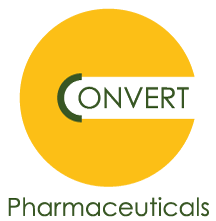12 Mar Yale School of Medicine’s Latest Validation
Yale School of Medicine’s Latest Validation on Advancing Cancer Treatment Through Hypoxia-Targeted Therapies Supports Convert Pharmaceuticals’ Strategy
Their recent findings supported by research professionals at AstraZeneca, Johnson & Johnson, and others published in the Journal of Experimental Medicine, provide critical insights into the role of tumor hypoxia in driving resistance to immune checkpoint inhibitors (ICIs) in lung cancer.
The study highlights that:
– Hypoxic tumor environments are linked to reduced MHC molecule expression and lower T-cell infiltration, diminishing the efficacy of ICIs.
– Hypoxia-associated genetic signatures in clinical datasets correlate with poorer patient outcomes.
– In preclinical models, treatment with a hypoxia-activated prodrug (HAP) delayed resistance to ICIs, offering a strategy to enhance immunotherapy.
This reinforces and validates the pioneering work already conducted by Convert Pharmaceuticals with CP-506, which has shown potent antitumor activity in preclinical studies, selectively targeting hypoxic tumor regions. We are conducting a Phase I-IIa clinical trial to assess the safety and efficacy of CP-506, both as a monotherapy and in combination with ICIs.
These findings underscore the potential of combining HAPs like CP-506 with ICIs in selected patients to address immune resistance, offering a new avenue for improving outcomes in oncology.
Link to the article: https://rupress.org/jem/article/222/1/e20231106/277112/Hypoxia-is-linked-to-acquired-resistance-to-immune?

